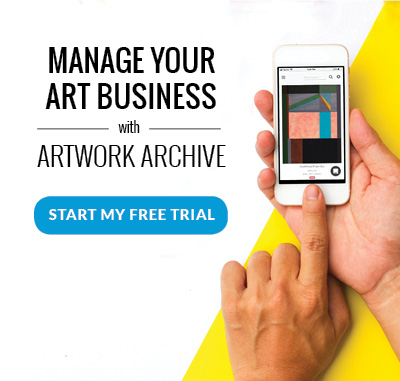 Photo by Vonecia Carswell on Unsplash
Photo by Vonecia Carswell on Unsplash
September is 'National Recovery Month' in the US.
The nature of the art industry—with its economic precarity, critiques, and “winner takes all” reward structure—can contribute to anxiety, depression, and substance abuse. It’s well-documented that many of art history’s best-known names have struggled with addiction, from Jackson Pollock and Mark Rothko to Jean-Michel Basquiat.
The Substance Abuse and Mental Health Services Administration (SAMHSA) website, which is run by the US government, explains that National Recovery Month is “a national observance held every September to promote and support new evidence-based treatment and recovery practices” for those dealing with addiction and substance abuse disorders.
According to the Clevland Clinic, about 1 in 5 adults and adolescents in the US live with a mental health disorder—making them extremely common.
Recovery can take many forms, from individual therapy to more community-based forums. In that spirit, Recovery Month is also intended to acknowledge “the emergence of a strong and proud recovery community, and the dedication of service providers and community members across the nation who make recovery in all its forms possible.”
One of those service providers is Ana Finel Honigman, a LGPC (Licensed Graduate Professional Counselor) therapist at Aquila Recovery in Washington D.C., who studied at Johns Hopkins University after earning a PhD in Art History from Oxford University.
Ana has written extensively on the arts for publications such as Artforum, ARTnews and Artnet. She has also taught courses at NYU's Steinhardt school of Culture, Education, and Human Development in Berlin and Sarah Lawrence College's semester abroad program at Oxford University, Wadham College.
Ana’s first book, Cult Artists: 50 Cutting-Edge Creatives You Need to Know, was published in 2019. Her latest book, published this month, is entitled What Alexander McQueen Can Teach You About Fashion—a biography of the famed designer who tragically died by suicide in 2010.
We sat down with Ana to discuss how artists can protect their mental health and her tips for avoiding the triggers that can sabotage active recovery.
This interview has been edited for length and clarity.
 Left: Ana Finel Honigman, LGPC and arts writer. Right: Ana's new book, What Alexander McQueen Can Teach You About Fashion
Left: Ana Finel Honigman, LGPC and arts writer. Right: Ana's new book, What Alexander McQueen Can Teach You About Fashion
AA: Are artists at greater risk for mental health issues than other professionals? Why or why not?
AFH: As with most things: yes and no. There are profession-specific stresses that can be contributing risks to artists’ mental health. I was recently listening to an incredible episode of one of my favorite podcasts called Decoder Ring about the feminist-activist artist Ilona Granet’s frustrated career trajectory. It concluded with the profound observation, “being an artist is a more high-stakes version of being a person.” That’s often true.
With an inherently and profoundly unstable structure to support a sustainable, healthy, adult life—without financial stability, benefits, a trajectory—most artists struggle with both ends of Maslow’s hierarchy of needs. They are expected to be vulnerable and raw in public, but until very recently expressing basic needs was stigmatized as crass and vulgar.
Artists are often rewarded for self-harming behavior and the myth of a positive connection between “madness and genius” persists.
On one hand, it is wonderful that artists can openly engage with difference and difficulties, be eccentric, or challenge societal norms; but, the community needs to continue developing awareness of the potential for exploitation and the ways that artists can maintain their health—while still creating meaningful, compelling, and relevant work.
AA: Describe your background and how you ended up in this line of work.
AFH: Since getting sober myself in 2012, I’ve had the privilege of being out about my recovery in the art community and I decided to devote myself to working with people, across disciplines and fields, who are dealing with addiction and early recovery.
I wrote my doctoral thesis at Oxford University about artists creating representations of pop-culture celebrities having mental health crises. While writing it, I was starting recovery from a substance abuse disorder that I developed during my early career as an art critic in Manhattan and London.
My thesis, which I finished in 2013, actually focused on early 21st-century mass-media abuse of Britney Spears, Paris Hilton, Kate Moss, and Amy Winehouse, who I knew as a friend in London. This topic has been more openly discussed in recent years. In many ways, we are living in a much kinder, more informed and progressive society for people with substance use disorders and mental health issues, and I consider being a therapist a form of activism.
Addicts have been victimized and marginalized in society. I feel part of my work is destigmatizing addiction for my clients. My credentials from the other areas of my past and current work help normalize recovery.
My current clients are such profoundly fascinating people with such complex lives and intellectual and emotional depth, that I really can’t envision a future where I don’t relish the honor and privilege to know them and help them—I hope—lead longer and better lives.
AA: What are some things artists should avoid to maintain their mental health?
AFH: That is a really difficult question to answer because artists may have pre-existing mental health issues that compel and inform their work. Additionally, artists may also have some learning differences that make conventional forms of expression challenging, so visual or abstract communication becomes a stronger means by which they can express themselves.
Furthermore, artists might have trauma that heightens their empathy and, by extension, their ability to create work that resonates with viewers.
I am not sure that avoiding parts of life or the artist’s internal being is always beneficial, but becoming more self-aware and having external networks looking after artists, especially young artists, can help people accept their experiences or differences and harness them for creativity.
AA: If social media is causing an artist anxiety, how should they deal with it?
AFH: Social media is so hard to avoid, although I know many people who do so. Because social media is so ubiquitous now, I can’t really recommend complete abstinence unless an artist personally—or ideologically—feels better after logging off.
I recommend accessing the wide range of feeds and forums that focus on issues that an artist authentically believes are important and nurturing to them.
AA: If studio visits are causing an artist anxiety, do you have any suggestions for ways to cope with that stress?
AFH: Studio visits can be excruciating. I just recommend having a friend, a therapist, or a meeting to turn to for support, either after the visit or before.
Fundamental coping mechanisms for anxiety can help in the moment, but the best long-term tool is communication and community.
AA: What best practices do you recommend for artists, so they can take care of their mental health?
AFH: The same as for most people, but for some more so, artists need boundaries and community.
Art can be very solitary and isolating. The lack of a conventional framework for separating work and other aspects of life can become pernicious. Boundaries are vital.
Here is a brief list of helpful practices that I would recommend to artists who are concerned about their mental health, as well as substance abuse:
-
Challenge the idea that prioritizing one's mental health and well-being somehow dims creativity by exploring the complexity of creative people’s biographies. Most often, when substance use disorders or mental illness worsen, creativity really drops. A book like Tom Dardis's The Thirsty Muse demonstrates this trajectory for Fitzgerald, Hemingway, and other authors.
-
Cultivate and participate in a community of artists who are insightful and aware of mental health issues. If an artist has substance use issues, for example, find 12 Step meetings in arts-centric areas and you'll connect with really extraordinary artists balancing recovery and creativity.
-
Have a friend or partner present during—or readily available after—studio visits to talk through the experience.
-
Find alternative forms of creative or expressive action that are completely separate from whatever you do professionally. If you're a painter, use dance or music as relief and unfettered, uncritical, open expression to move and relieve your anxieties around how you, and others, see your work.
-
If you struggle with social anxiety or drink to manage the hyper-social situations of gallery openings, find sober friends to attend events with and draw clear boundaries about when to go home. So much art business happens in boozy gallery openings, after-parties and artist bars, so it’s important to have support and accountability structures in place.
-
If necessary and possible, find a therapist with a sliding scale or peer-support group to safely express your concerns and explore your responses to the creative pressures. The financial challenges are real but try to network for information about available options and services in your area.
-
Find people who are funny and laugh. My therapy sessions, especially my groups, have a lot of laughter. Early recovery, confronting trauma, managing grief, and addressing mental health struggles can be scary and grim, but laughing with others makes life meaningful and everything more bearable. If you can add humor to your daily life, with respect and compassion, you can survive anything.
-
Meaningful art exists to increase our empathy, insight, and understanding of ourselves and others. The ultimate goal of every artist and person should be finding and maintaining our integrity, but we all need to learn to live for ourselves to give to others.
To learn about other effective ways that artists can cope with stress and preserve their mental health, click here.


.gif)




